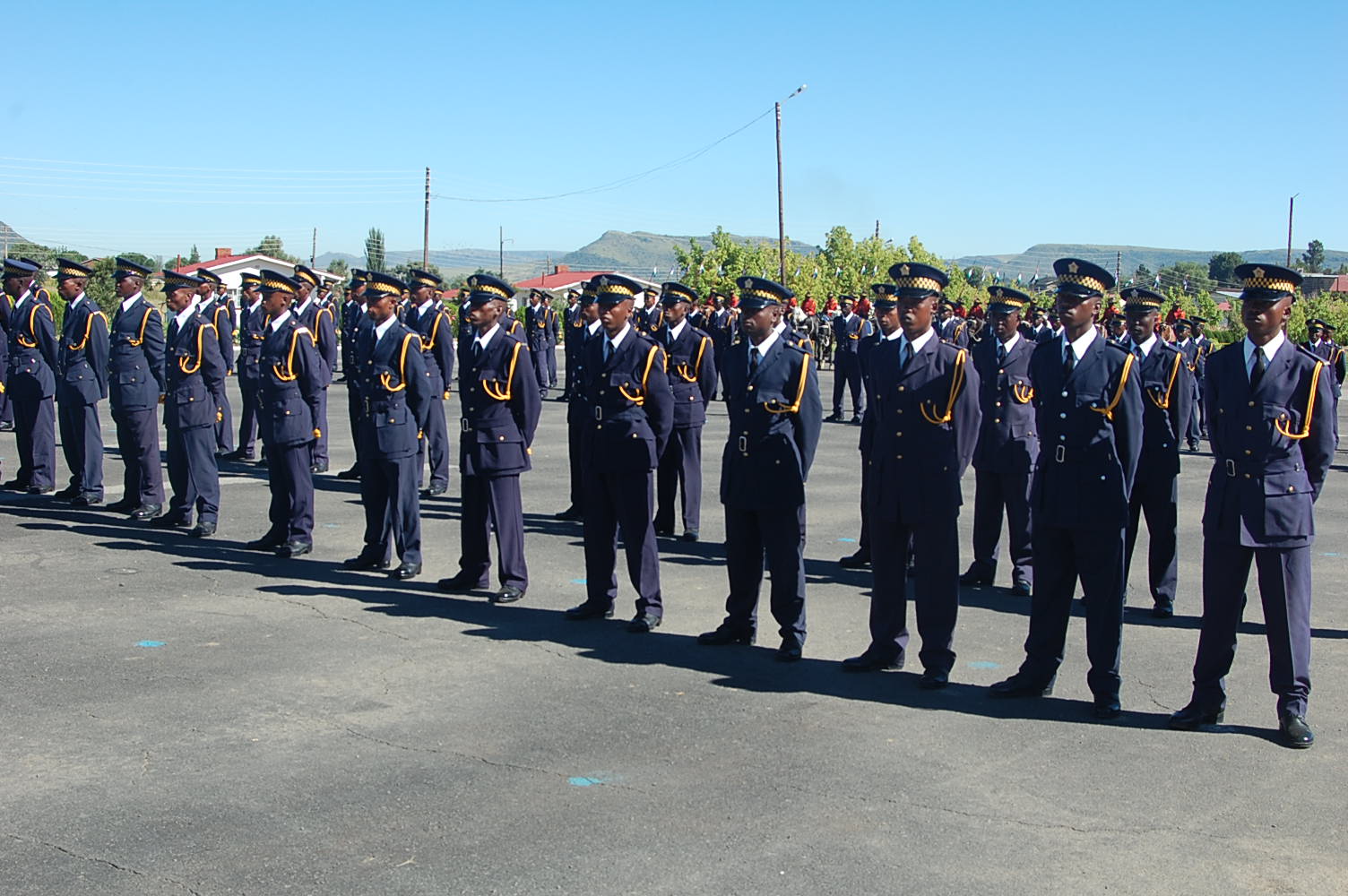Lesotho’s exiled police commissioner returned to the country Wednesday, ordering his officers to go back to work. But this week’s violence has left the force disarmed and with reason to still live in fear.
“It was around eight o’clock when we heard the shots,” said one of the few remaining officers at Lesotho’s Police Training College in the capital Maseru on Tuesday.
“The power was cut and then for around 30 seconds we heard a burst of automatic gunfire.”
From beyond a wire fence that protects this sprawling facility, unidentified gunmen unleashed the latest volley of Lesotho’s political crisis.
On almost the same spot in 1988, Pope John Paul II warned the tiny country’s youth that “violence only begets further violence”.
No one was hurt, but the senior officer — who asked not to be named for fear of his safety — and many others believe this crisis will beget more violence.
Tensions with the military existed before this week’s attempted coup and have not lessened simply because the prime minister has returned or regional powers have issued a statement.
Police commissioner Khothatso Tsooana is himself forced to travel in a South African police car, with armed South African escorts.
As almost everyone in this strikingly beautiful country of high plains, valleys and towering basalt escarpments tells you, for this past week “things have not been normal”.
It began on Saturday, when the military attacked several police facilities, killing one officer and seriously injuring four more.
The prime minister fled the country calling it a military coup, possibly hatched by political rivals and an army commander he tried to sack.
The military denies the charge, saying it acted to disarm police, who planned to pass assorted hand grenades, pump-action shotguns, AK-47, M16 and SLR rifles to unspecified political radicals.
“When they came on Saturday, it was clear the guns were just an excuse,” said another officer. “They demanded to know where dockets (case files) were.”
In particular, the soldiers wanted to see files relating to corruption charges against the deputy prime minister Mothetjoa Metsing.
They also wanted to take any files on Lieutenant General Tlali Kamoli, as well as soldiers implicated in a series of politically motivated bombings.
Officers involved in the cases fled across the nearby border to the relative safety of South Africa.
Police officers uniformly blame deputy prime minister Metsing and army commander Kamoli for orchestrating the coup attempt.
The Police Training College officer believes Kamoli, who refused to relinquish his post, still has the loyalty of the special forces and military intelligence, making him a formidable adversary.
According to one foreign diplomat based in Maseru, many of the attacks this week were carried out by Kamoli’s special forces unit of around 40 men.
“We had information that the attack would happen like that, that they would cut the power and then start the assault, but what could we do,” said the officer.
“We could never win a fight against them, we did not even return fire.”
For five days, Maseru’s streets seemed normal by day. But the police force was conspicuous by its absence.
There were no squad cars patrolling this city of 250,000, roughly the size of Orlando, Belfast or Port Moresby.
Commanders had ordered most not to report for duty. Those who did report had been instructed not to wear uniforms, for fear they may become a target for the military.
At the Lesotho Mounted Police Service’s dilapidated central booking office on Tuesday afternoon an old man wandered in clutching documents.
He scanned the dozen wooden teller windows, plastered with pictures of escaped and wanted felons, searching in vain for an officer.
There are none to be found, just a long burned-out log fire and stacks of case files, unclaimed drivers licences and passports, free for anyone to walk in and grab.
Out back, a handful of officers stood around in civilian clothes picking at a plate of sheep’s head and pap — a maize porridge.
“We cannot respond to calls,” said one man, wearing a flat cap and heavy coat, “going to an armed robbery with just a pistol is like trying to stop a river with a spade.”
Another thanked God that the residents of Maseru have not turned to rioting or looting, which they would have been helpless to prevent.
Rearming the police will now be a priority, but first officers will have to be coaxed back to work. SAPA






 WhatsApp us
WhatsApp us 

